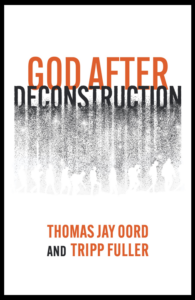Eleven Ways to Rethink Religion in Light of Science
I was recently invited by the Center for Christogenesis to give a paper. (Thanks, Ilia Delio, Robert Nicastro, and team!) It was part of the Center’s “Rethinking Religion in an Age of Science” online conference.
Given the invitation, I took the opportunity to reflect on what precisely I’d like to see changed in religion. And what it could learn from science. And I ended up with eleven suggestions!
Of course, I’m using “religion” and “science” in very general ways. So you’ll probably identify exceptions to the way I characterize either. But here are my suggestions, in no particular order. And I’ve added a bit of commentary to each.
1. Religion should abandon quests for certainty but, like science, make inferences to the best explanation.
This means, in part, that religions should reject the idea of an inerrant scripture. It should also reject the idea that the Pope, church, religious leader, or religious group is inerrant. And it should deny that any experience gives us inerrant access to God’s mind. (For more reasons to reject certainty, see God After Deconstruction.)
2. Religions should avoid seeking axiomatic absolutes. It should incorporate experiential data as evidence to support or undermine religious beliefs.
While we cannot be certain about the content of our experiences, they provide us with the raw data for religion. There are no axiomatic absolutes from which to start thinking about God and the world.
3. Religions should affirm the deep empirical reality of free will as an experiential nonnegotiable.
Some religious people reject their own experience of free will. Some scientists do too. But our experience of free choices is what we know better than any doctrine of God or scientific theory. Religions should also affirm other experiential non-negotiables, such as the reality of an external world (reject solipsism, radical skepticism), the reality of values (reject reductive materialism, extreme relativism), cause and effect (reject constant conjunction), and purposive action (reject nihilism, dysteleology).
4. Religion should consider God a necessary and efficient cause but not a sufficient cause in creation.
We should reject the deistic idea that God exists but never interacts. We should reject the supernatural view, which says God occasionally intervenes and controls. We should reject metaphysical atheism too. Religions should embrace the idea that God is one uncontrolling cause among other causes.
5. Religions should stop referring to “human nature,” as if it were an abstract essence.
Since Darwin, the notion that any creature has a nature has been undermined. And yet many religious people continue to talk about “human nature.” Both religion and science should reject essentialism.
6. Religions should give up binary thinking about gender and sexuality.
Both religion and science science should reject binary thinking about sexuality. By the way, a great book arguing this from a scientific perspective is Performance All the Way Down.
7. Religion should affirm big bang cosmology but reject creatio ex nihilo (creation from nothing).
There is no biblical support for creatio ex nihilo. And the big bang doesn’t require creatio ex nihilo. Besides, creatio ex nihilo assumes God has the kind of power that makes the problem of evil insoluble. Religious believers should say God always creates in relation to what God previously created, because that’s the way of love.
8. Religions should accept the implications of evolution and give up language that suggests a return to a pristine past (e.g., pre-fall, Garden of Eden).
Although most theologians I know affirm evolution, they continue to use the language of “restoration” and “redemption,” as if we could return to some ideal, past state of existence.
9. Religions should affirm that all complex creatures have the ability to love, and that being made in the image of God is not confined to humans.
I define love as acting intentionally, in relational response to God and others, to promote overall well-being. We have no good reason to think humans are the only creatures capable of loving.
10. Religions (and sciences) should be open to the possibility of mind in all creatures, from the simplest to the most complex, and that God has mental and material dimensions.
Instead of thinking creatures and creation are vacuous, religions (and science) ought to embrace panpsychism, or what David Ray Griffin called “panexperientialism.” My preferred label is “mental-material monism.”
11. Religions (and science) should embrace the intrinsic value of all creation not just of humans.
If we assume that all creatures have intrinsic value, this will dramatically affect our response to the climate crisis. And eco-theology will have greater significance if we consider creatures in all ecosystems as intrinsically valuable.


Comments